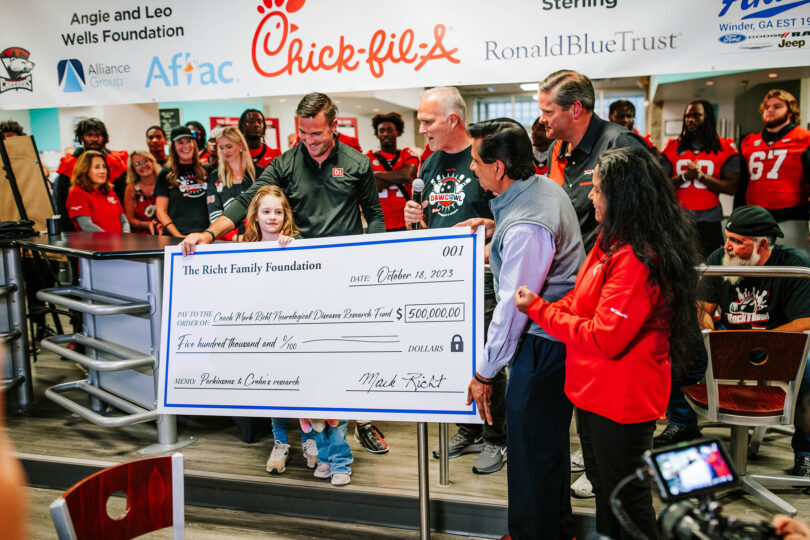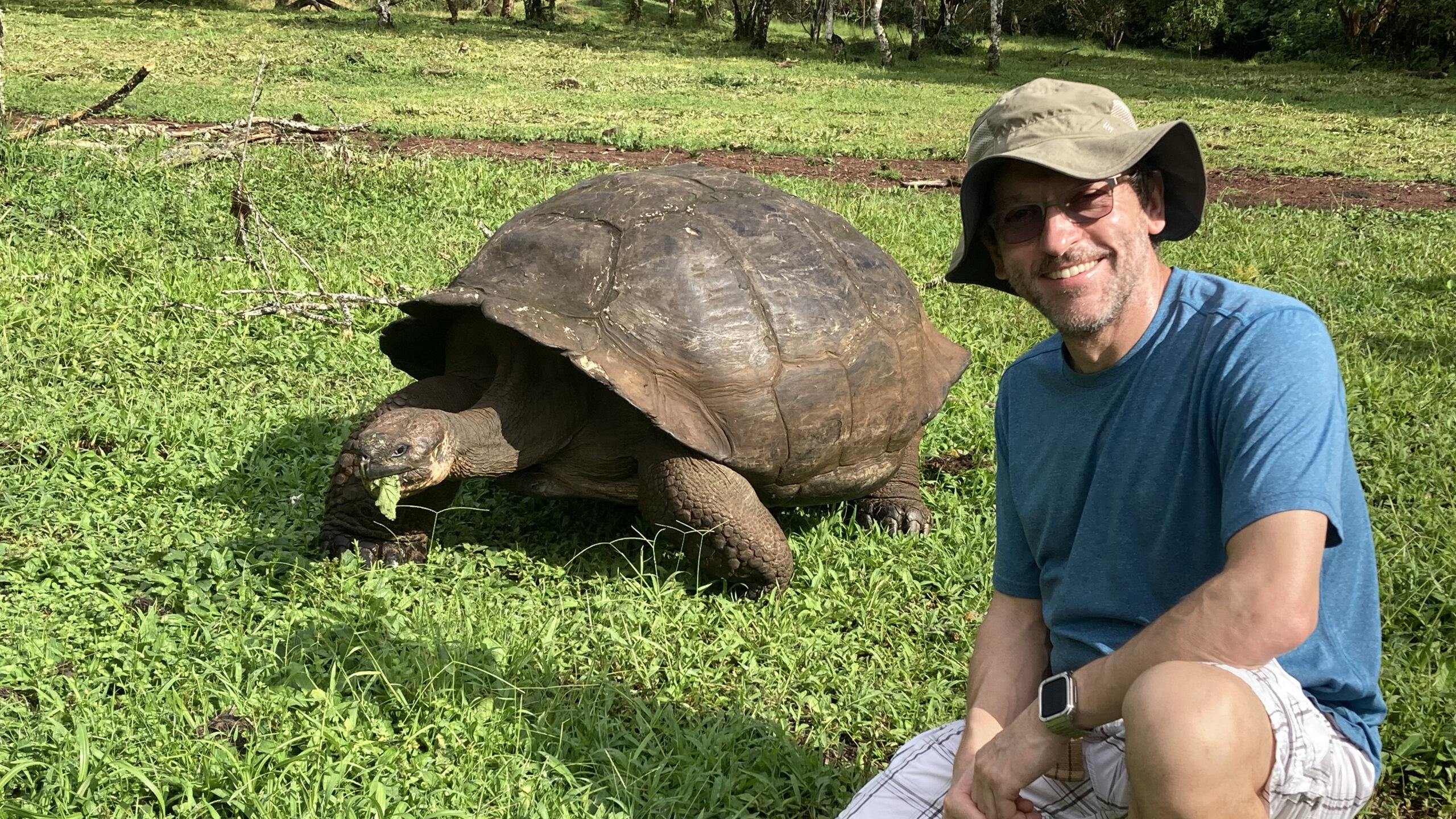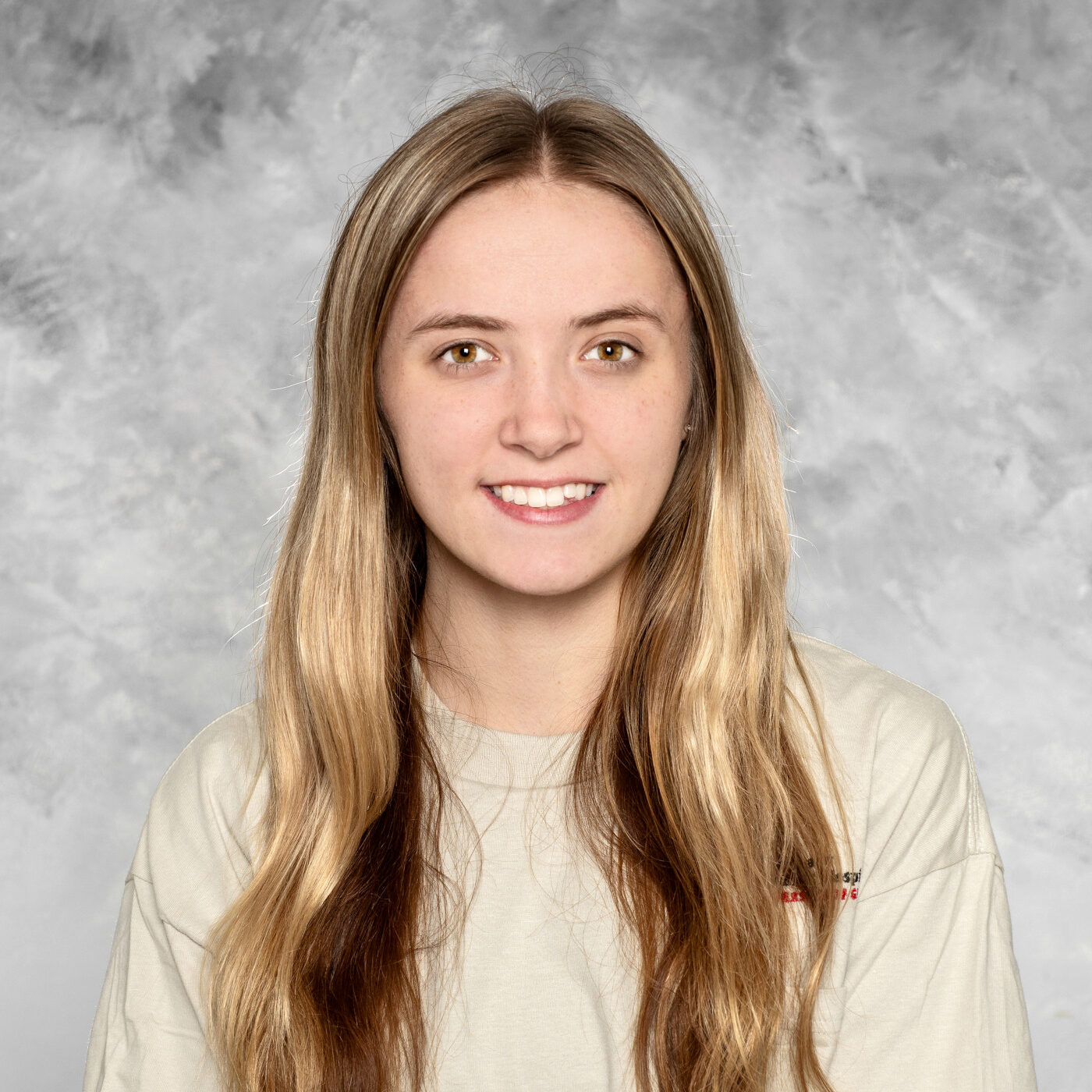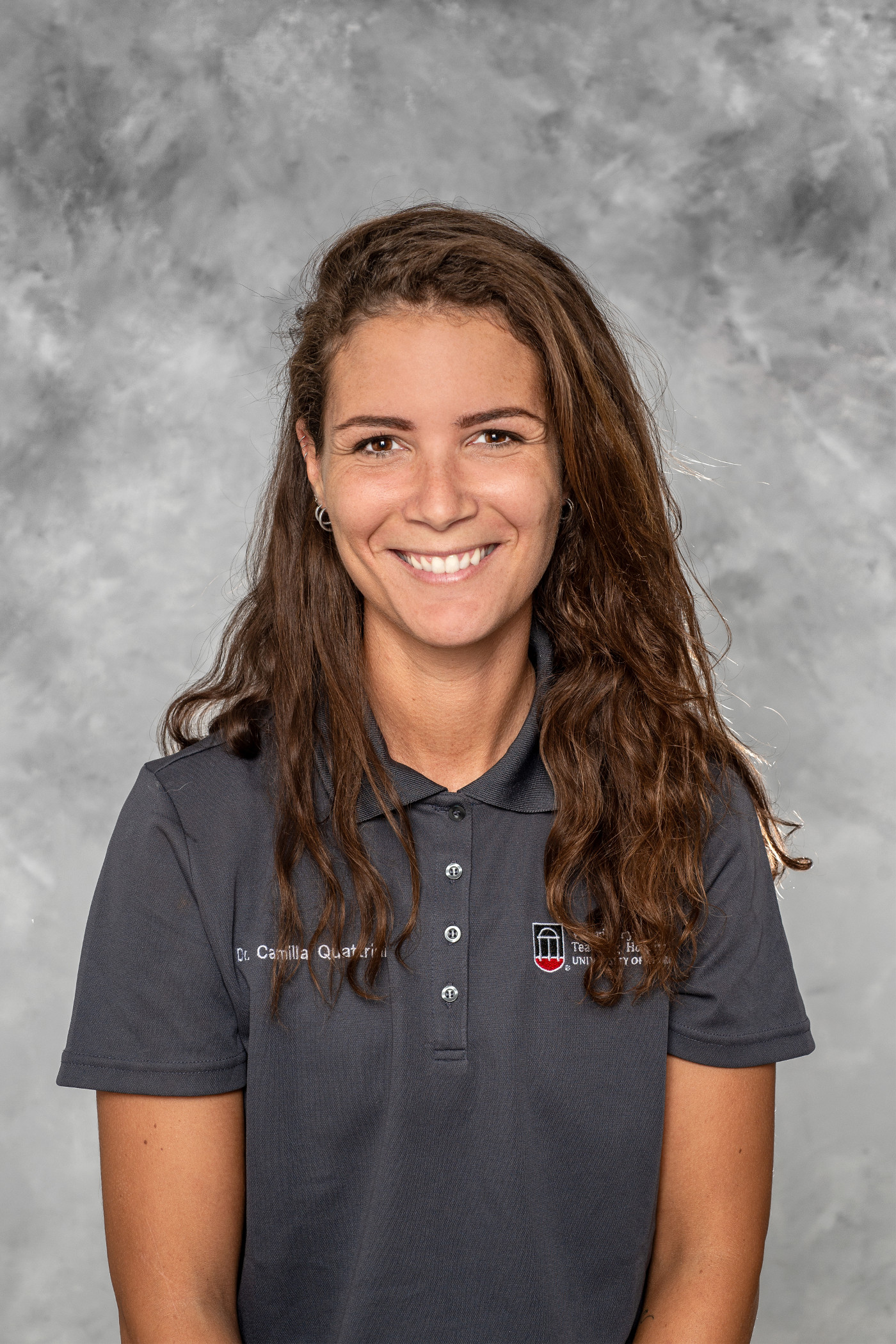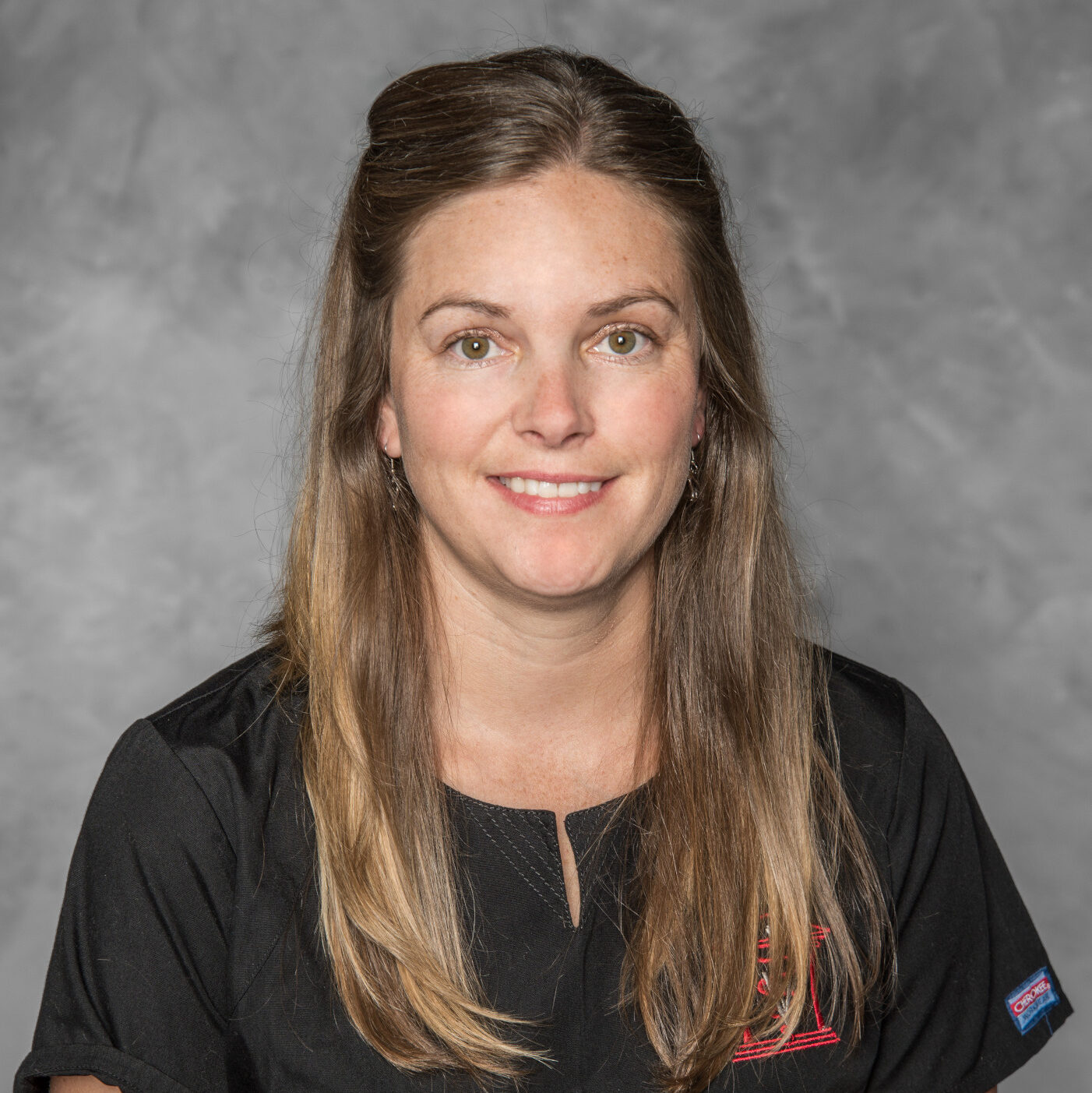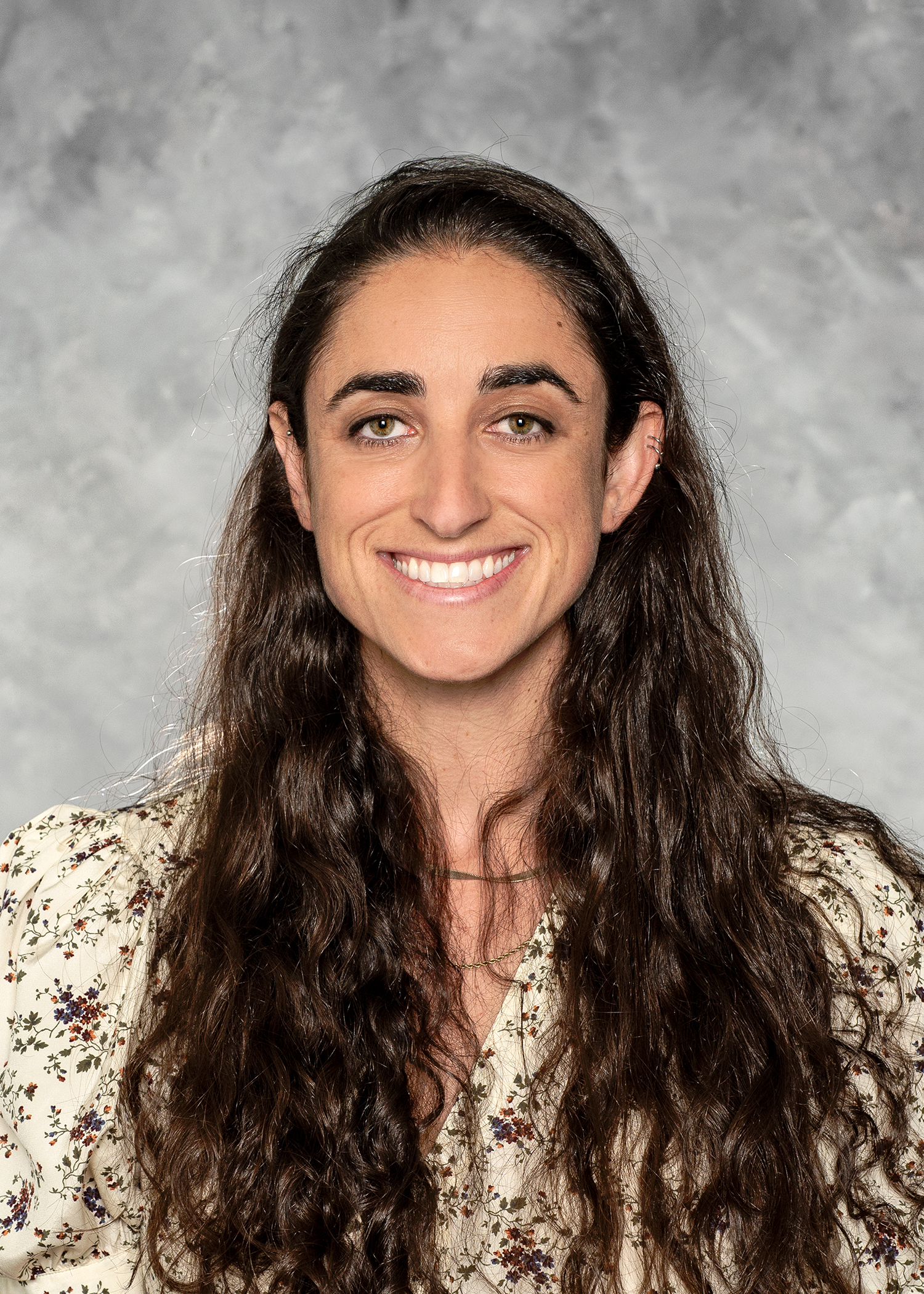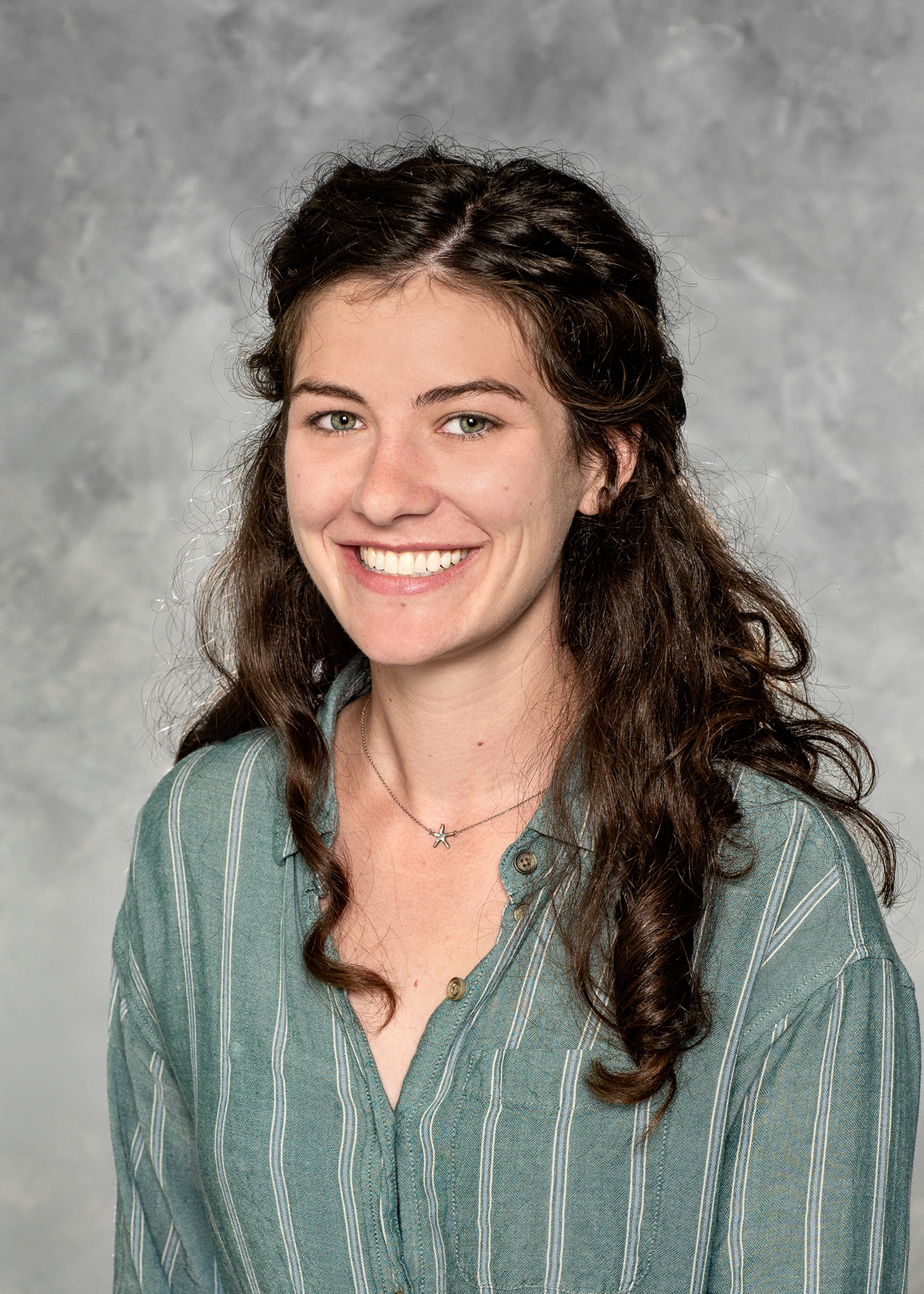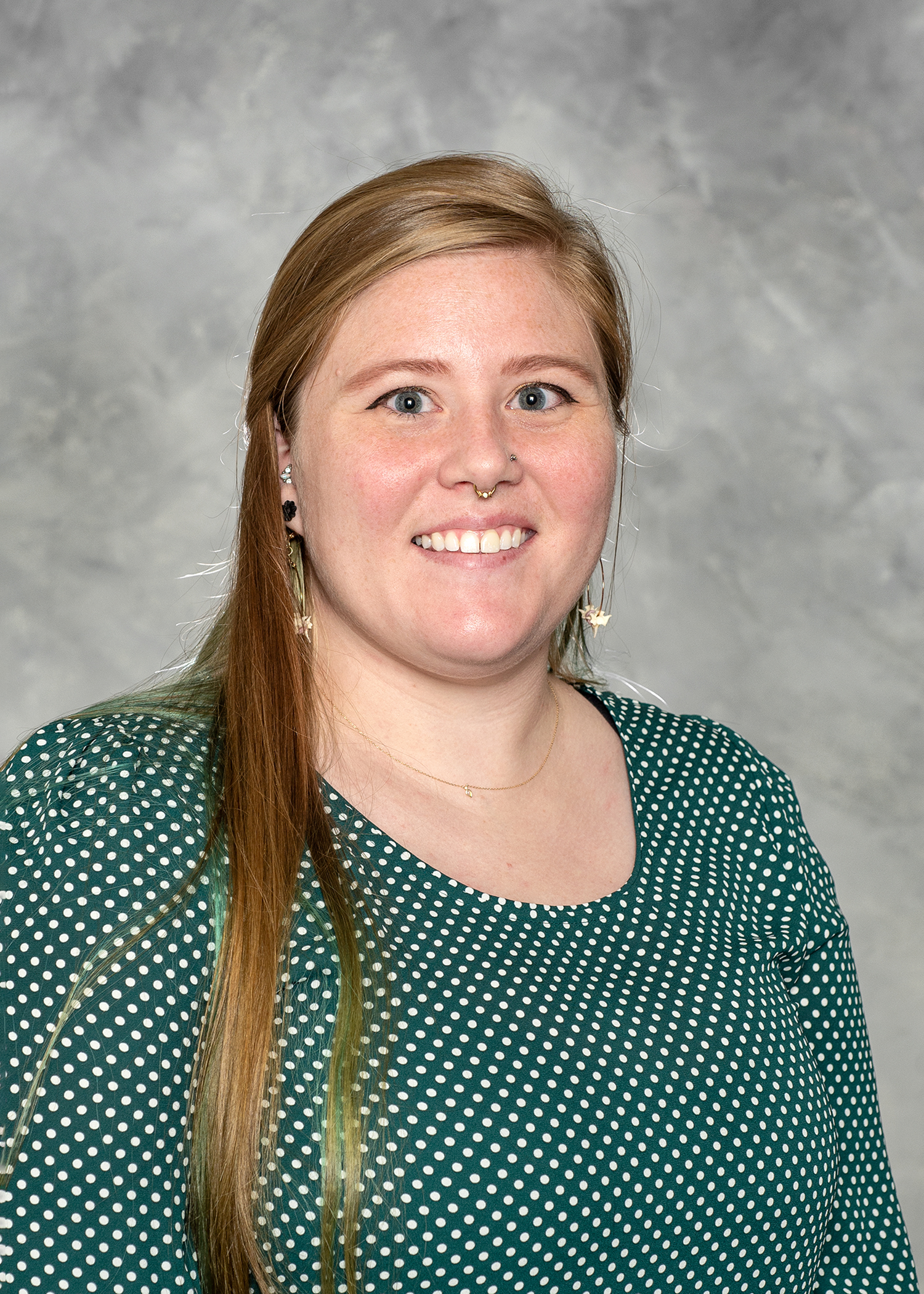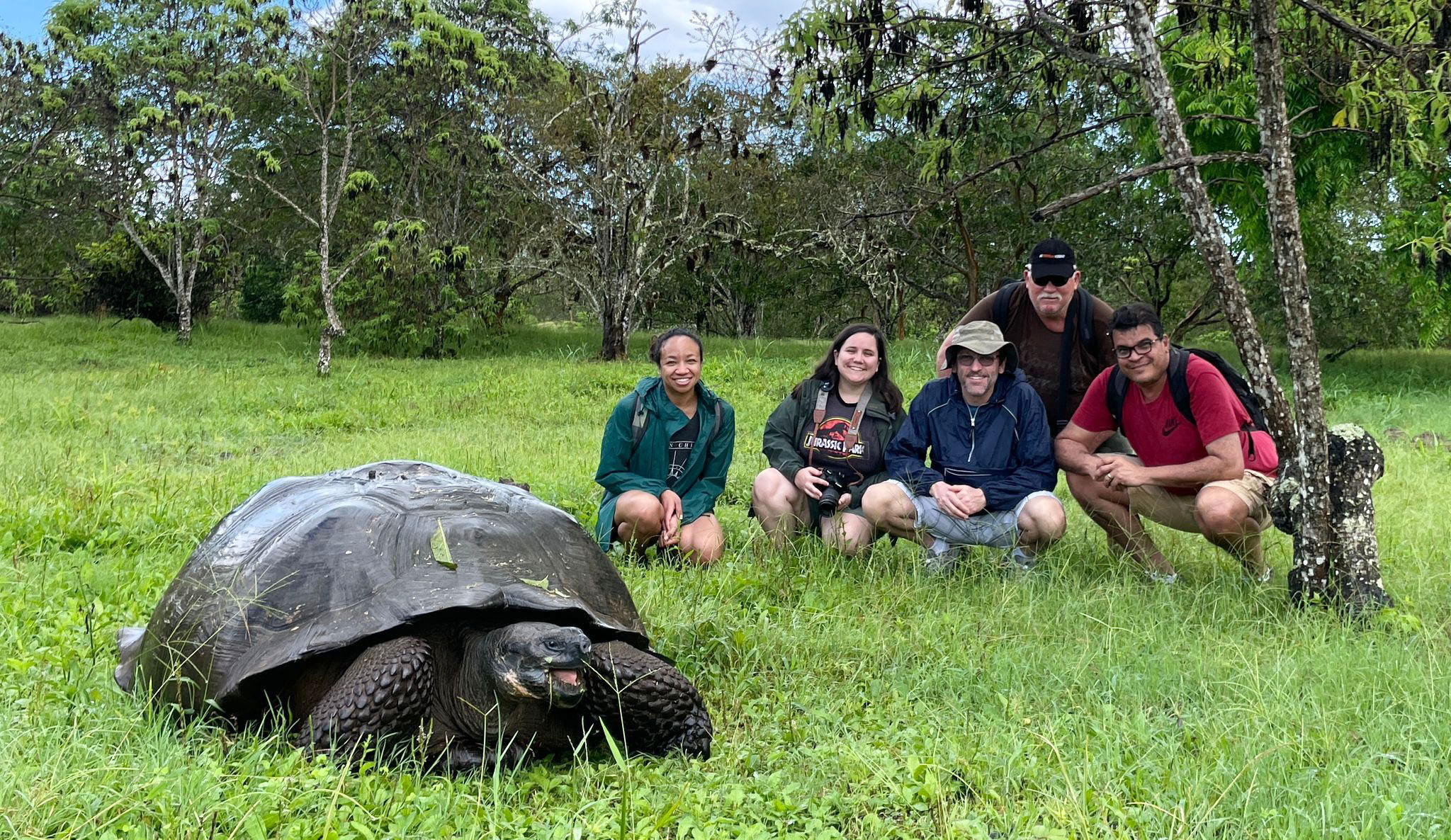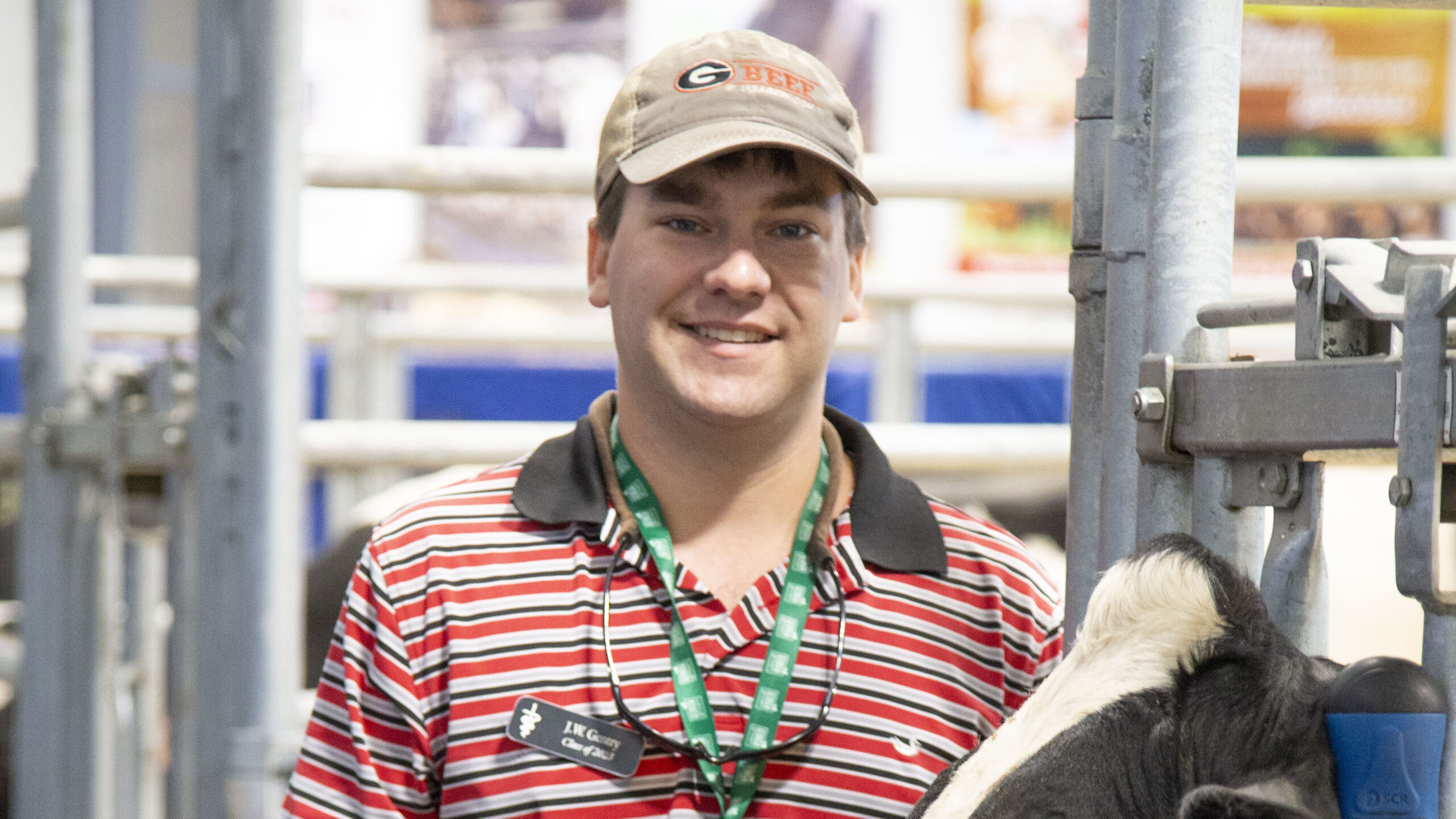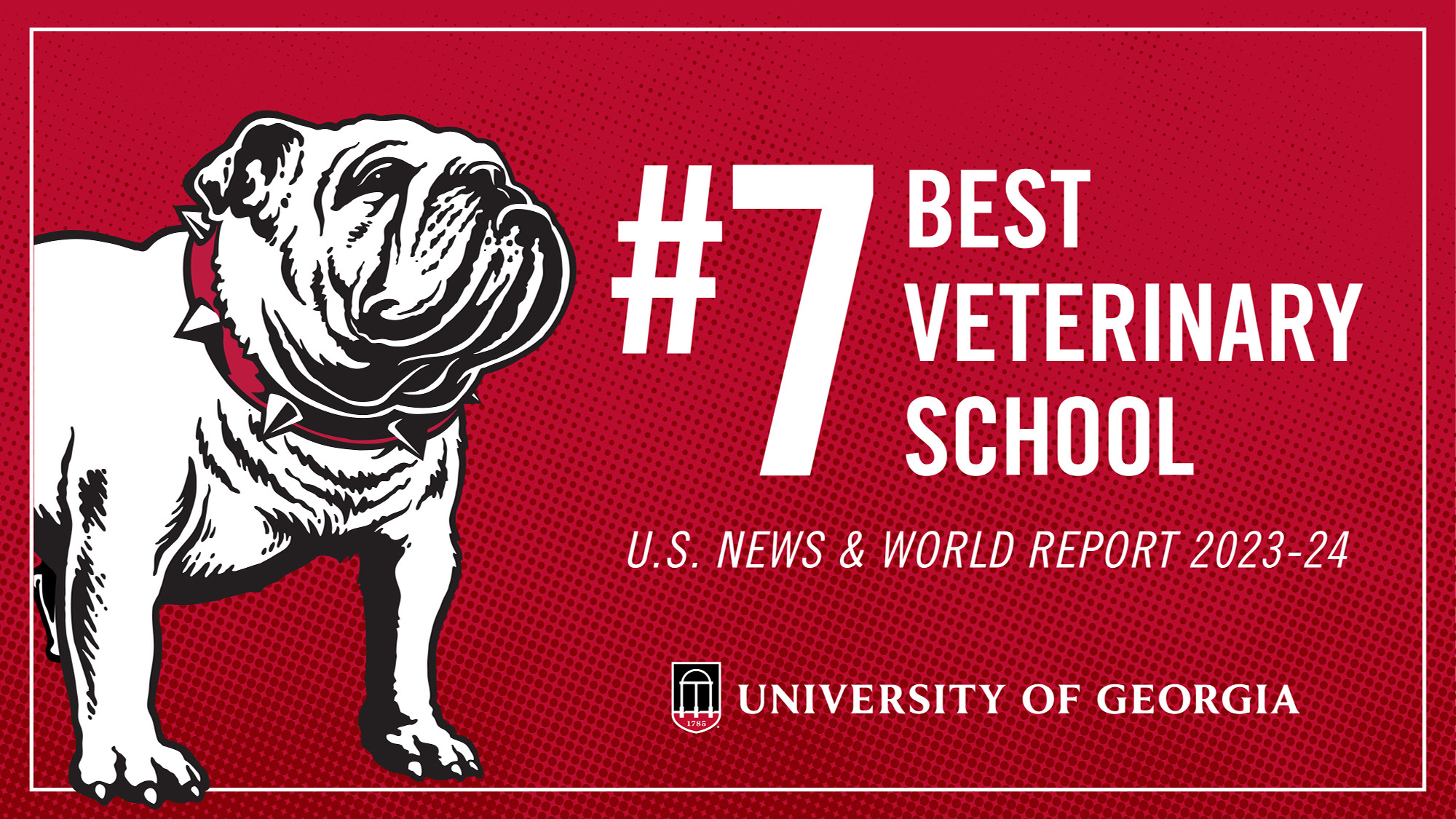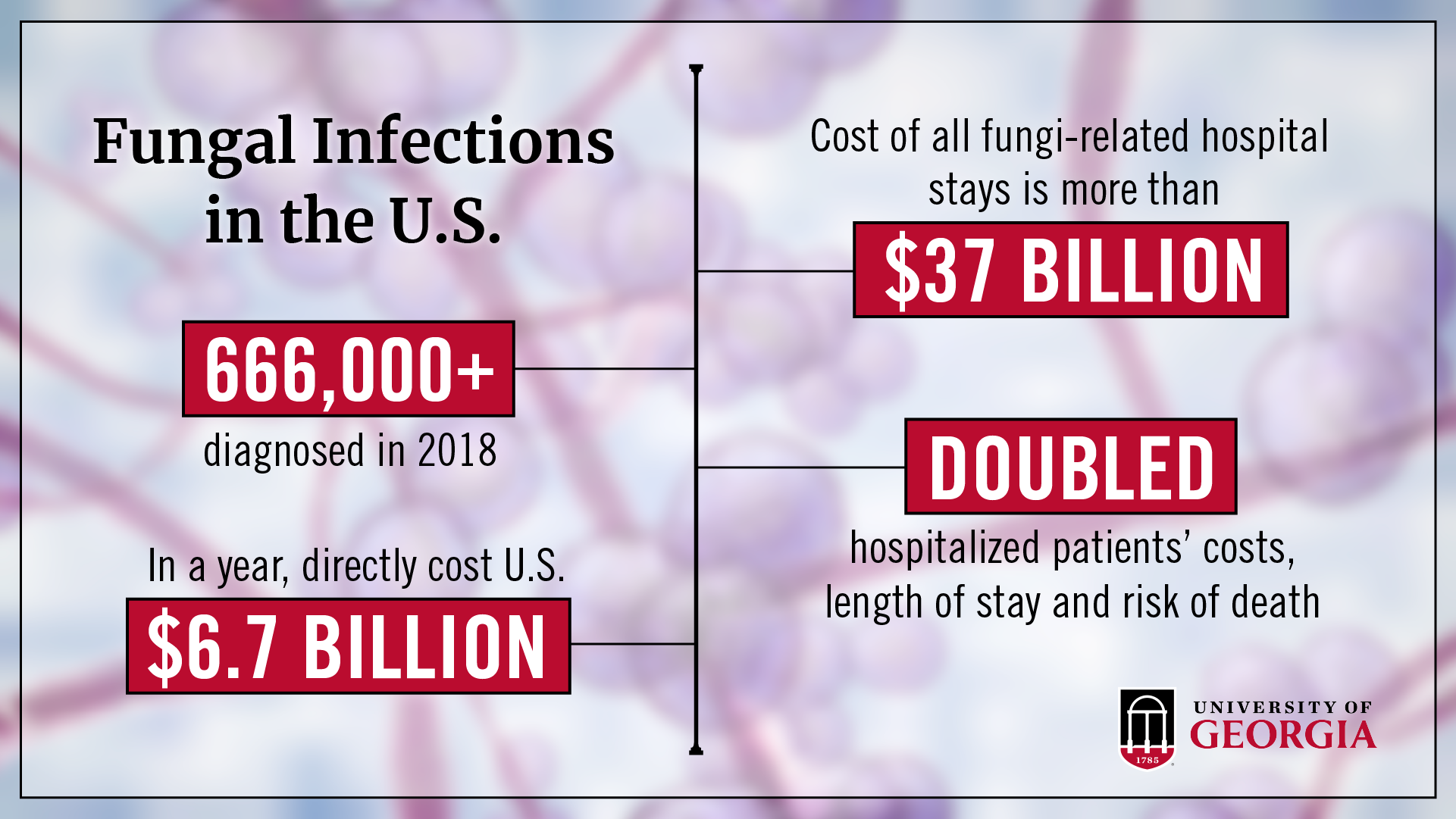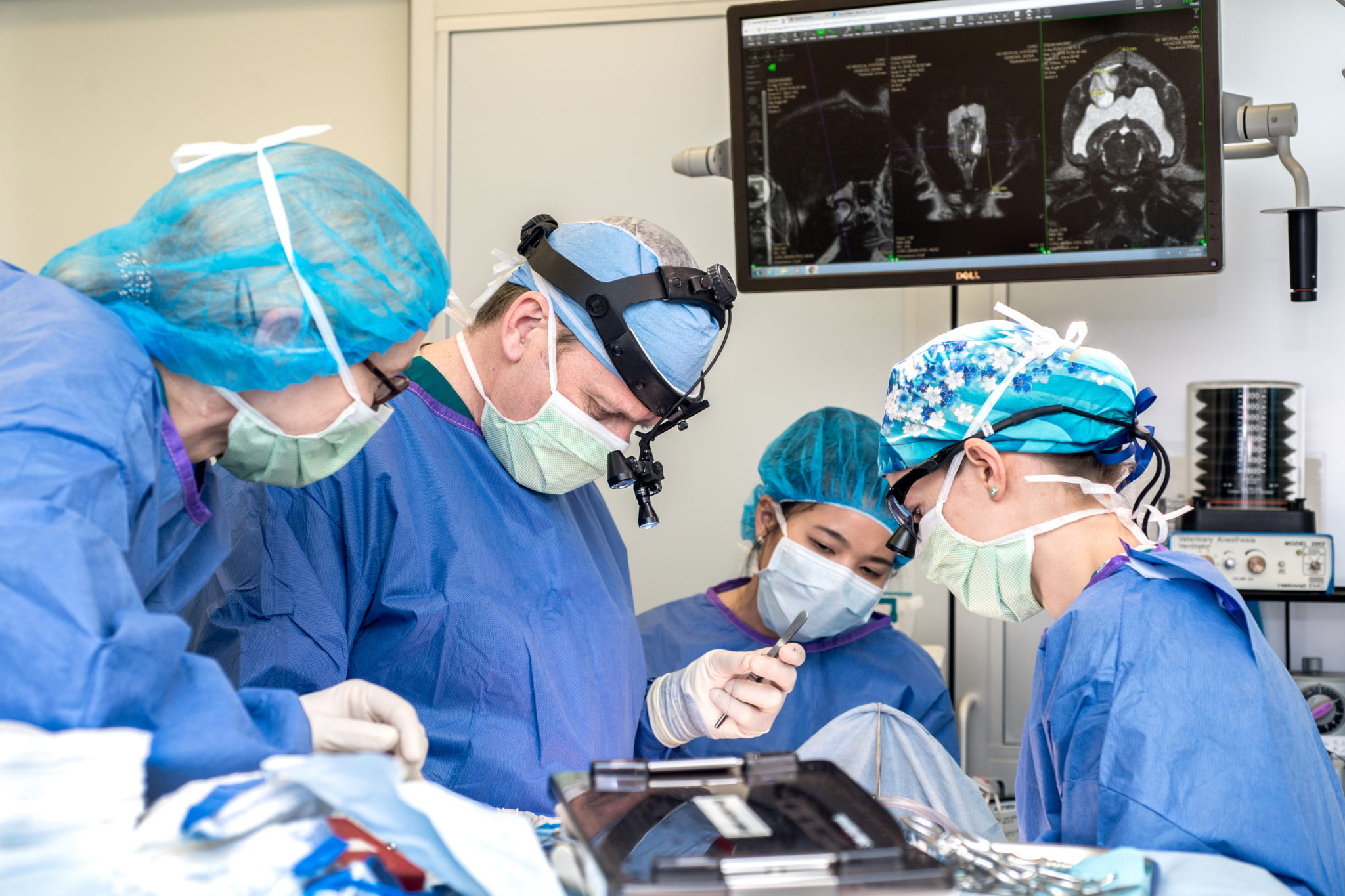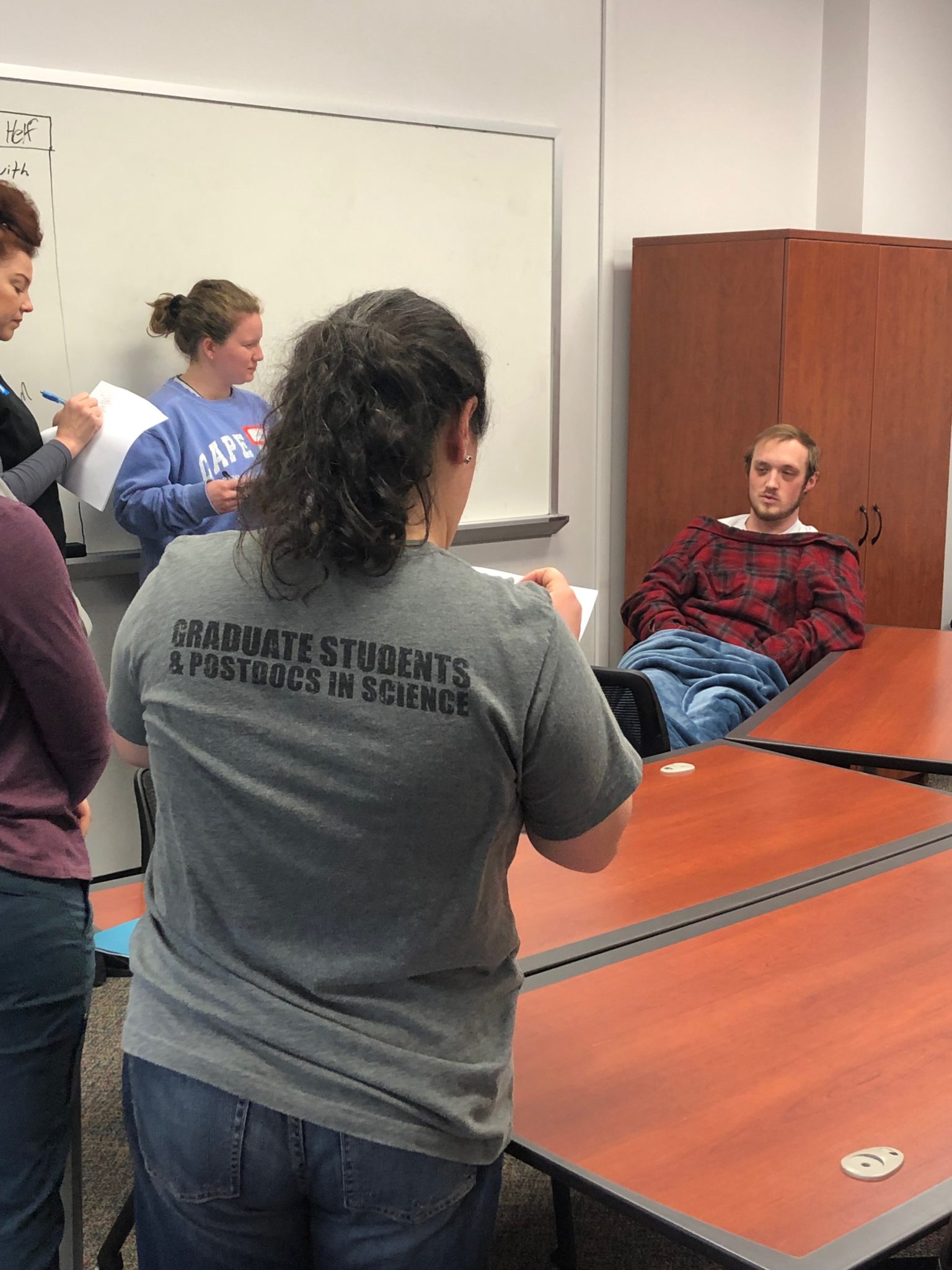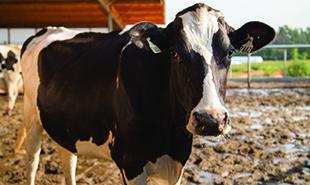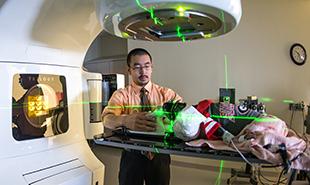Archive for the ‘Uncategorized’ Category
Mark Tompkins is appointed director of UGA Center for Vaccines and Immunology
Mark Tompkins, Ph.D., UGA Athletic Association Distinguished Professor in Virology and Immunology, has been appointed director of the Center for Vaccines and Immunology (CVI) in the College of Veterinary Medicine. Established in 2015, the CVI is made up of a premier team of researchers that are leading the way in […]
Distinguished Professors bring a wealth of experience and hope for new advancements to their roles with CVM
What makes a professor distinguished? In the College of Veterinary Medicine, it’s a clinician who sees the need for 24/7 emergency care for animals and builds a program to provide just that. And it’s researchers who dive deep into the mechanisms of well-known but little understood diseases in hopes of […]
Lucinda (Cindy) Dixon
Dr. Dixon is a graduate of the Auburn University College of Veterinary Medicine. Following graduation, she completed an equine medical and surgical internship. She has worked in both small and mixed animal private practice and is a certified veterinary acupuncturist. In addition, she has over a decade of experience in […]
Christopher Zdyrski
Dr. Christopher Zdyrski obtained his PhD in Genetics and Genomics from Iowa State University where he focused on the culture and characterization of novel 3D organoids (stem cells). Dr. Zdyrski currently works in the SMART Comparative Medicine Laboratory at UGA’s CVM, led by Dr. Jonathan Mochel and Dr. Karin Allenspach. […]
Mark Richt raises funds for Parkinson’s research
Led by former University of Georgia head football coach Mark Richt, the Chick-fil-A Dawg Bowl raised more than $758,000 for Parkinson’s disease and Crohn’s disease research at UGA.
The Aesculapian is Back
Esc-a-what? The Aesculapian, the official magazine of the University of Georgia College of Veterinary Medicine, is back after a long hiatus. You don’t have to pronounce it correctly to enjoy the read, but we’re including a convenient pronunciation key with every issue just the same. No matter how you say it, Aesculapian is […]
Ricardo Mendes
Before joining UGA, Dr. Mendes worked as a full professor in a University in Brazil, Instituto Federal Catarinense (IFC), Concórdia, Santa Catarina state, and has been granted several research grants at federal and state levels. He has a strong background in veterinary pathology, starting with a Master’s degree in this […]
Mackenzie Long
After completing her DVM training at the University of Georgia in 2018, Dr. Mackenzie Long received her PhD and veterinary clinical pathology boards certification while training at The Ohio State University. Dr. Long is passionate about enhancing veterinary oncology diagnostics and treatment. She is particularly interested in better characterizing and targeting resistance […]
Mekala Sundaram
Dr. Sundaram is a new Assistant Professor appointed by Infectious Diseases and the Savannah River Ecology Laboratory. A quantitative ecologist by training, she began her academic path at the University of Mumbai where she obtained a Bachelor of Science degree in Life Sciences and Biochemistry. Her love of ecology led […]
Karin Allenspach jorn
Dr. Allenspach is a clinician-scientist and has been employed as a faculty in academia for the last 20 years. Dr. Allenspach has a current H-index of 43 with over 5,700 citations and 230 publications. She has broad background in small animal internal medicine (Diplomate European College of Veterinary Internal Medicine […]
Mohamed Elbadawy
Dr. Mohamed Elbadawy, BSc, MS, PhD (Veterinary Pharmacology) has been employed in academia as a faculty for the past 15 years with a demonstrated history of teaching and research. Dr. Elbadawy has a lot of high quality publications and patents in the veterinary pharmacology, toxicology, and cancer biology. Dr. Elbadawy […]
Leigh Anne Clark
Dr. Leigh Anne Clark earned her doctoral degree in 2004 from the College of VeterinaryvMedicine at Texas A&M University studying exocrine pancreatic insufficiency in Germanvshepherd dogs. After graduation, she remained in the Department of Pathobiology as a Research Assistant Professor, investigating the genetics of dermatomyositis in Collies and Shetland sheepdogs […]
Tatum Mortimer
As bacterial pathogens become increasingly resistant to antimicrobials, new interventions are needed to manage their spread in human and animal populations. My lab is focused on uncovering the mechanisms of adaptation that contribute to pathogen success. We use computational tools alongside microbial whole genome sequencing data to reconstruct pathogen transmission, […]
Jonathan Mochel
Dr. Jon P. Mochel obtained his Veterinary Medical Degree from the National Veterinary School of Alfort (Paris, France). He completed his Doctorate studying Neurosciences in collaboration with the College de France and received the Silver Medal from Paris XII for his work. Dr. Mochel holds a MS in Pharmacology and […]
Douglas Paton
Plasmodium falciparum, the causative agent of malaria, is a deadly parasite that is spread through the bite of Anopheles mosquitoes. My lab is committed to developing new and novel ways to reduce global malaria burden, and studies the interaction of Plasmodium parasites with their Anopheles mosquito host, with an emphasis […]
UGA Professor renowned for surgical skills assists with giant tortoise conservation in Galápagos Islands
International partnership allows release of once captive animals Pictured above, from left: Veterinary Technician Nia Chau, Second-year Resident Dr. Kelsey Trumpp and Drs. Stephen Divers and Sam Rivera, kneeling, and Joe Flanagan, standing, with a giant tortoise. Why? It’s the question that drives scientific discovery. It’s also the question most […]
Student Spotlight – J.W. Gentry
J.W. Gentry (DVM, 2023) will take his learning home to Middle Georgia to assist food animal producers Watching J.W. Gentry work the Georgia Grown Baby Barn at the Georgia National Fair in Perry is like watching a small-town mayor meet his constituents at a barbecue on the town square. Everybody […]
Junebug Gerke Success Story
Junebug is a 7 year old, mixed breed dog who was adopted by the Gerke family. Junebug’s family hoped that when they rescued her and provided her with love and safety that she would be okay, but unfortunately that was not the case. As a rescue, Junebug had never interacted […]
UGA CVM advances closer to No. 1 in US News Rankings of VetMed Schools
The University of Georgia College of Veterinary Medicine rose to No. 7 in the latest ranking of veterinary colleges nationwide by U.S. News and World Report. The CVM has consistently placed in the top 10 in past rankings, and this distinction now places the CVM in the top 5 of […]
Fungal infections cost U.S. $6.7B in a year
New research from the University of Georgia found that fungal infections account for $6.7 billion in health care spending in 2018. And that’s just the cases that were directly responsible for inpatient hospital stays. Combined with secondary infections and diagnoses, the total cost of hospital stays associated with fungal infections […]
UGA researchers developing new models for malaria drug development and testing
Two UGA researchers are working to make it easier to develop effective treatments for malaria, a disease that sickens millions worldwide and kills hundreds of thousands each year. In tropical climates around the globe, malaria poses a grave risk to already vulnerable populations. In 2019, the World Health Organization estimated […]
Operational Impacts of COVID-19
Our Hospital and Community Practice Clinic are open at this time. However, our appointment availability varies from service to service due to our backlog of cancelled appointments and our busy emergency caseload. Please call for more information. We continue curbside service at this time. . This means we will not be […]
DVM-PhD program
The College’s DVM-PhD dual degree program is designed to enhance the career development of students with an interest in science, veterinary research, and graduate education by pursuing a DVM and PhD degree concurrently. Also known as the Veterinary Medical Scientist Training Program (VMSTP), this innovative program produces scientists with a […]
Department of Small Animal Medicine & Surgery
Caring for cats, dogs, exotic animals and wildlife through education, service and research
Spillover: students participate in disease outbreak simulation
Do you ever wonder what would happen if a dangerous disease threatened our community? Who responds? What are the steps taken to contain it and protect the public’s health? Thirty-three students at the University of Georgia found out recently when they participated in Spillover: A One Health Infectious Disease Outbreak […]
New price for Chlamydia spp. antibody titer determination by IFA, as of July 1, 2017
As of July 1, 2017, the price for Chlamydia spp. antibody titer determination by IFA will increase by $4 in order to offset the rise in cost for testing. The new prices will be: $36 for IFA serology The Chlamydia spp. panel with antibody determination with IFA will be $68 […]
UGA CVM Alumni Association Recognizes Four
The University of Georgia College of Veterinary Medicine recognized four alumni with awards for service to the college and the veterinary profession during its 53rd Annual Veterinary Conference and Alumni Weekend.
Supporting Georgia’s agriculture industry one herd at a time
The beef and dairy industries in Georgia are significant contributors to the state’s economy.Helping to safeguard these important commodities is the goal of the production medicine team at the University of Georgia Veterinary Teaching Hospital. This service travels to dairy and beef cattle operations throughout the state and works closely with producers and their veterinarians to improve herd health.
Highly Pathogenic Avian Influenza Preparedness
Between December 2014 and June 2015, an outbreak of Highly Pathogenic Avian Influenza (HPAI) occurred in the Pacific Northwest and the Mid-western states
Advanced radiation therapy now available
When the UGA Veterinary Teaching Hospital moved into its new facility in March 2015, it upgraded its linear accelerator to one of the most advanced models available, the Trilogy® system, putting UGA on the leading edge of veterinary radiation therapy nationwide.
Possible Rabies bite/exposure case?
Possible Rabies bite/exposure case?
The Facts on Trichomoniasis
Trichomoniasis is a sexually transmitted disease in cattle that can cause significant economic losses in herds. The disease is caused by a single celled parasite, Tritrichomonas foetus. Though the true prevalence of trichomoniasis in cattle is not known, several states have recently enacted stringent rules to control the importation or transmission of the disease.
Macrorhabdus Ornithogaster Infection in Pet and Farmed Birds
Macrorhabdus ornithogaster is a well-known cause of proventriculitis in birds. Although this organism was originally termed Megabacterium due to its large, rod-like appearance, the organism has since been classified as an anamorphic ascomycetous yeast. Clinical signs may be variable and include sudden death or chronic wasting. Diarrhea or enteritis has also been reported in birds colonized by Macrorhabdus; however, these birds can have concurrent enteric parasites, bacterial infections, or other diseases that could cause diarrhea.
Sparganosis: A Zoonotic Cestodiasis
Sparganosis is an infection of tissues by second stage larvae (spargana or plerocercoid) of pseudophyllidean tapeworms. Sparganosis due to pseudophyllidean cestodes such as Sparganum spp. (e.g. Sparganum proliferum) and Spirometra spp. (e.g. Spirometra mansonoides, Spirometra erinaceieuropaei) can occur in body cavities or in tissues of intermediate and paratenic hosts. Sparganum proliferum is phylogenetically identified as a new species in the order pseudophyllidea. The life cycle and the definitive host of Sparganum proliferum is unknown but believed to be similar to that of Spirometra spp. The definite hosts of Spirometra spp. are carnivores, and the eggs are shed in feces. The eggs embryonate in the environment, hatch in water and release coracidia. Coracidia are ingested by intermediate hosts, copepod crustaceans (Cyclops spp.), and develop into procercoids. Second intermediate hosts including fish, reptiles, and amphibians ingest infected copepods and acquire procercoid larvae. Procercoids develop into plerocercoids in the second intermediate hosts. Predators of the second intermediate hosts are infected by the plerocercoids. Plerocercoidosis/sparganosis develops after ingesting procercoids or plerocercoids with contaminated water or infected intermediate hosts. Humans and other mammals including apes, pigs, dogs, and cats can serve as paratenic or second intermediate hosts and develop sparganosis.
Mushroom Intoxication
Two cases of mushroom toxicosis recently have been diagnosed at the TVDIL. The first case involved a 2 year-old mixed breed dog that died following a brief course of vomiting and bloody diarrhea. The second case involved a 12 week-old Labrador Retriever puppy with a history of vomiting with death occurring within 24 hours of the onset of clinical signs. The submitting veterinarian noted that the owners had seen the puppy eat a mushroom. Both dogs had submassive to massive hepatic necrosis which is very typical for mushroom poisoning.
Enterotoxemia in Sheep and Goats
Enterotoxemia, also known as overeating or pulpy kidney disease, is a condition caused by Clostridium perfringens type D. These bacteria are normally found in the soil and as part of the normal microflora in the gastrointestinal tract of healthy sheep and goats. Under specific conditions, these bacteria can rapidly reproduce in the animal’s intestine, producing large quantities of toxins. The epsilon toxin produced by C. perfringens Type D is the most significant toxin in producing the disease. Young animals are most susceptible. Sudden and high mortality rates may occasionally occur in lambs and kids. Although adult animals are also susceptible to enterotoxemia, they develop immunity due to frequent exposure to low doses of these toxins.
Veterinary Forensic Pathology Cases – Who Can You Call?
The importance of the veterinarian’s role in animal cruelty cases has recently been highlighted in the news media and numerous journals. In December, the AVMA endorsed a document called “Practical Guidance for the Effective Response by Veterinarians to Suspected Animal Cruelty, Abuse and Neglect” which is intended to aid veterinarians in establishing individual, practice-specific policies and procedures that best serve the needs of the animal, the client, the veterinarian and the community.
Renal Pathology Consultation Service
Kidney disease is a leading cause of illness and death in dogs and cats. Treatment of acute and chronic kidney disease is most effective when the disease is recognized early in its course and when treatment is instituted with knowledge of the underlying disease process. To aid in the diagnosis and treatment of kidney disease, the Athens Veterinary Diagnostic Laboratory is now offering renal diagnostic and treatment expertise through its newly established Renal Pathology Consultation Service.
Ante-Mortem Diagnosis of Canine Distemper
Canine distemper virus (CDV) infects and causes disease in domestic dogs and many wild carnivores, including coyotes, ferrets, foxes, lions, mink, raccoons, and skunks. Although sustained vaccination of domestic dog populations has greatly reduced the incidence of canine distemper, the disease is still prevalent worldwide and now occurs in sporadic outbreaks. Young puppies between 3 and 6 months of age are more susceptible to infection and undergo more severe disease than adult dogs. However, non-vaccinated older dogs are also highly susceptible to infection and disease.
Toxicity Due to Nandina domestica in Cedar Waxwings (Bombycilla cedrorum)
Many cedar waxwings were found dead in a yard in Thomas County, Georgia, in April, 2009. Five of these submitted to the Tifton Veterinary Diagnostic and Investigational Laboratory, where they were examined grossly and microscopically.
The Daily Life of a Pathologist
Veterinary pathologists are challenged daily with making a diagnosis on a variety of surgical biopsies. Many times clinicians will opt for surgical biopsy hoping for a definitive diagnosis that will give relevant information for therapy and prognosis. The pathologist becomes that one person from whom clinicians and owners wait for an answer. At times, however, the histological findings are inconclusive. Some examples of challenging diagnoses are discussed below.
Bovine Enterovirus
Bovine enterovirus (BEV) belongs to the family Picornaviridae (picornaviruses), which consists of small (18–30 nm), nonenveloped viruses with an icosahedral capsid that encloses a single copy of positive-sense RNA genome. Bovine enterovirus is in the genus Enterovirus, along with poliovirus, human enterovirus, coxsackieviruses, swine vesicular disease virus, echovirus 11, and others. Originally classified into several serotypes, only two serotypes, BEV-1 and BEV-2 are now recognized.Because of the unavailability of type specific antisera or a commercially available diagnostic test, a genotypic classification, which supports previous recognized serological distinctions has been proposed.
Quality in the Laboratory
The Georgia Veterinary Diagnostic Laboratories are two of only 41 accredited veterinary laboratories in North America. We are accredited by the American Association of Veterinary Laboratory Diagnosticians (AAVLD). The goal of the AAVLD is to assist Labs meet or exceed the World Organization for Animal Health Quality Standards and Guidelines for Veterinary Laboratories. Meeting these quality standards requires the effort of every staff member, from the directors and pathologists to the technicians and administrative personnel.
Leptospira Infection in Animals
Leptospirosis is a potentially fatal and zoonotic bacterial disease caused by pathogenic bacterium Leptospira. There are over 200 serovars maintained in renal tubules of many domestic and wild animal species.
Blood and Cytology Submission Guidelines
General Guidelines and Principles
- Label slides, tubes, and slide holders: Use patient name and site. Labeling is necessary to prevent and correct sample errors, and to preserve chain of custody. A key, explained in the submission form, can be used for multiple masses/specimens.
Issues Associated with Salmonella in Pet Foods
Earlier this year, an outbreak of salmonellosis was associated with tainted peanut butter products from the Peanut Corporation of America, and products are still being recalled as this article is being written. Although most of the products involved were for human consumption, some dog biscuits, rawhides, and other pet treats were among the recalled items. In addition, many pet owners admitted to having fed peanut butter crackers and other recalled human foods to their pets. Given recent deaths in animals due to melamine/cyanuric acid and aflatoxin contaminated dog and cat foods, it is understandable that owners are concerned about food recalls. However, Salmonella-contaminated pet treats and foods actually pose a risk to owners as well as to their pets.
Diagnosis of Skin Disease – Skin Biopies
One of the most common reasons for bringing pets to a veterinarian is skin disease. In many cases, the diagnosis is obvious and treatment is straightforward and successful. However, diagnostic tests are necessary to determine the cause when lesions are unusual; suggestive of serious diseases that require expensive, dangerous, or long term treatment; or do not respond to treatment as expected. Skin biopsies are frequently the most direct means of making a diagnosis because they are relatively easy to do, rapid, cost-effective, and safe for the patient.
Selection, Collection & Submission of Samples for Histopathology
Histopathology is a powerful and inexpensive diagnostic method. Submission of the right specimen in the right fixative is crucial for microscopic evaluation of biopsy specimens and organ or tissue samples from necropsies. Properly selected, appropriately collected and preserved specimens are very helpful in establishing an accurate diagnosis.
On the Wilder Side…Ranavirus in Amphibians
Ranaviruses have been implicated as one of the causes of worldwide amphibian declines. These viruses can be deadly to amphibians and have caused mass mortality events in North America. Clinical signs of ranavirus infection may be vague but include hemorrhaging of the skin, lethargy, and swelling (edema). Multiple internal organs may be affected; however, the kidney and liver often are targeted, resulting in hemorrhage and necrosis. In some species, mortality can occur as early as within a few days of exposure.
Immunohistochemistry Basics & Diagnosis of Neoplasia
Immunohistochemistry has been available for many years, but is becoming much more widely used with advances in automated staining processes, available antibodies, and knowledge. The principle behind the technique is relatively simple: all cells have antigens, and the distribution of antigens is tissue-dependent.
MRSA in Pets: A Public Health Concern?
Staphylococci are Gram-positive, facultative anaerobic cocci. The genus is subdivided into many different species and most of them are host adapted. For the most part, staphylococci are skin commensals of healthy individuals where they can be carried transiently or permanently and only cause disease when there is a breech of epithelial integrity. The most common clinical presentations are skin abscesses. The species of staphylococci most frequently isolated from both healthy and sick dogs and cats is Staphylococcus intermedius (SI). Staphylococcus aureus (SA), although isolated from animal infections, is not as common as SI. The susceptibility profiles of both staphylococci species is changing, with clear increases in the number of isolates that are multidrug resistant (MDR).
Laboratory Diagnosis of Johne’s Disease
Johne’s disease (JD), caused by Mycobacterium avium subspecies paratuberculosis (MAP), is an economically important disease of ruminants. The disease is characterized by chronic, progressive granulomatous enteritis and affects a wide variety of hosts including cattle, sheep, goats, llamas, alpacas, bison and deer. The U.S. dairy cattle industry estimates an annual economic loss of $220 million due to JD. The presence of MAP in milk, its resistance to pasteurization temperatures, and its possible association with Crohn’s disease in humans suggest a significant public health risk.
Addition of Fluoroscopy C-arm Imaging System Expands Procedures in Multiple Services
The new flouroscopy imaging system will benefit radiology, soft tissue surgery and cardiology services.









